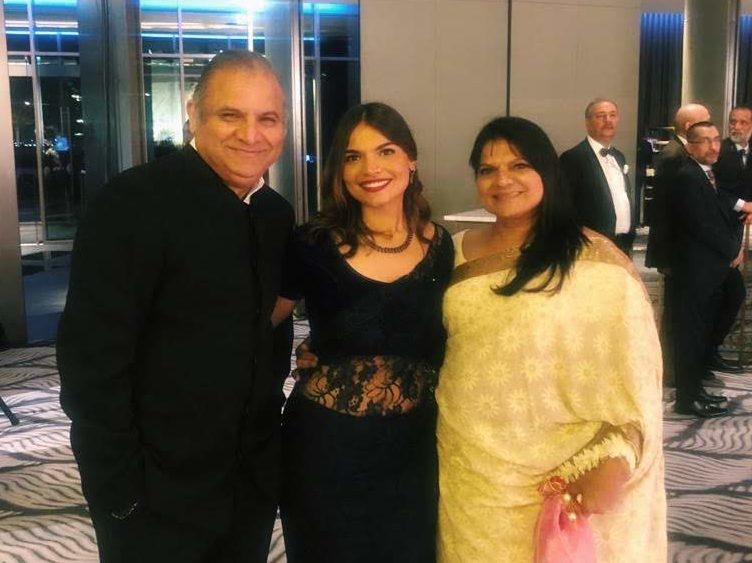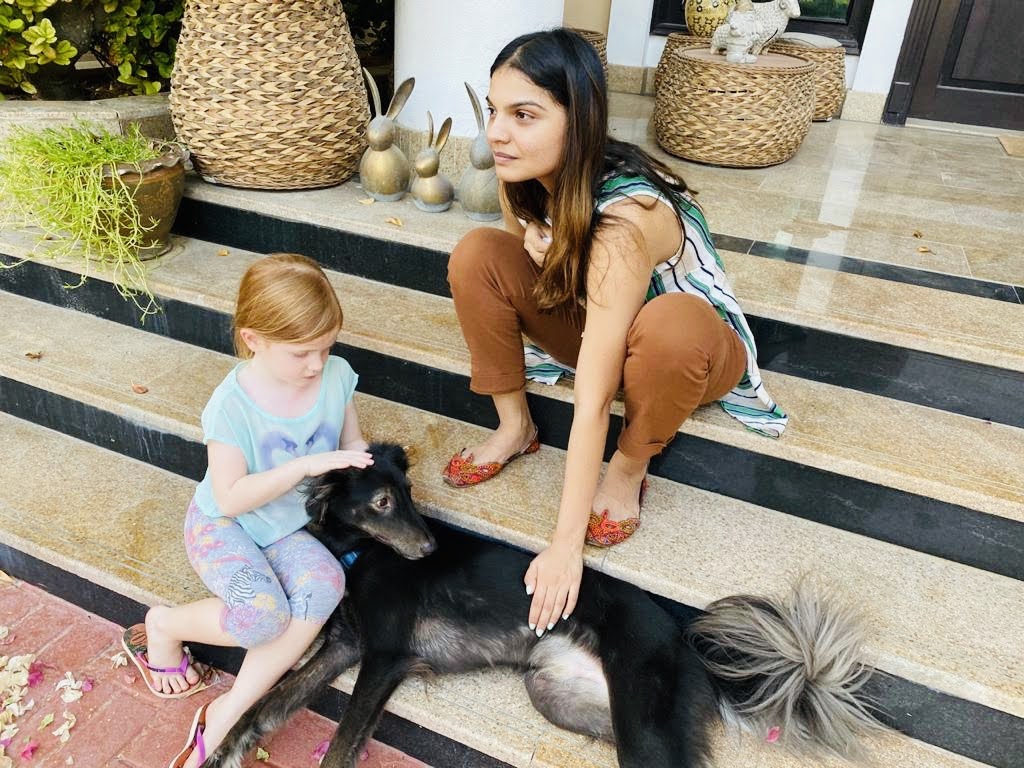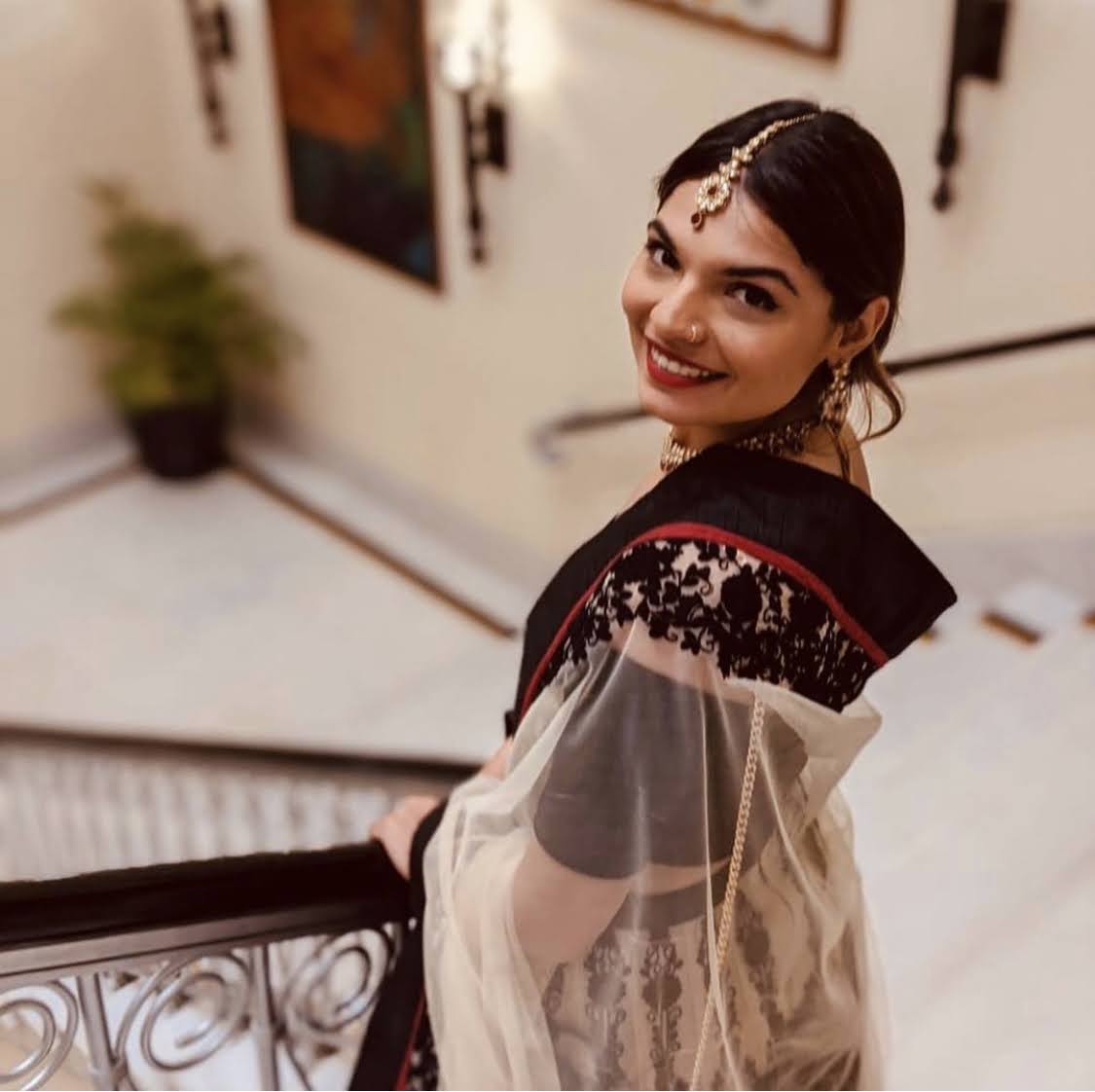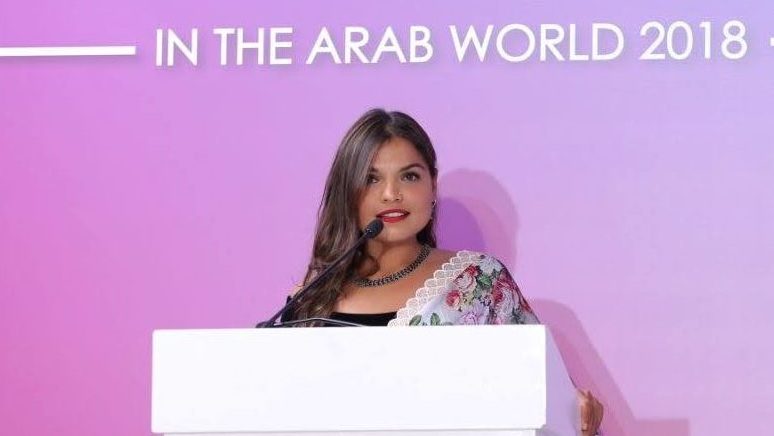Nyla Khan, Powerhouse Making Education Available to All in the Middle East
Nyla Khan is the executive director of Kids World Nurseries, a network of Montessori schools in the United Arab Emirates. She also co-founded Mirai Partners, a learning and development organization. Mirai Partners uses high-tech methodologies, including eye tracking and artificial intelligence, to identify literacy levels and detect developmental delays among children across the MENA region and beyond, in Africa and Asia. In 2020, Forbes Middle East featured her in its “30 Under 30” list of young innovators effecting positive change in the region for her groundbreaking work to make high-quality education available to all children.
The Media Line: Nyla, it’s a pleasure to have you on our dream section.
Khan: Thank you so much for having me. I can’t say that I’m more honored than I already have said. Thank you so much!
TML: It’s quite an honor on our end knowing what you’ve been doing. You’ve impacted the lives of millions of people through education. How did you begin your journey?
Khan: It hasn’t been me alone. Of course, I’ve been lucky enough to have an incredible, incredible co-founder and team. And the journey really started, I think for me, [with] education specifically. I remember being 12 years old and watching an Oprah Winfrey segment because I really loved her and she had the segment on how she had started a school in South Africa for young girls and how her dream was that through education she would be able to empower them to have better lives.
And I think ever since then, and my mother being an early-years educator, it just kind of made sense that education is meant to be the solution to a lot of the kind of issues that we see in the world, and that’s a primary driver as well for me with an education [which] is to make sure that no child gets left behind, no child is vulnerable to violence, and if they are, we can through education address those problems.
Forbes Middle East featured Khan in its “30 Under 30” list of young innovators effecting positive change in the region. (Courtesy)
TML: What was missing and how did you correct it?
Khan: I think that schools today are not really preparing students necessarily for the future that we are getting into, kind of the near-term or the midterm or long-term future, and if they are, it’s usually [that] you find those schools in kind of high-income neighborhoods or high-income states or countries, whereas the majority of the world kind of gets left behind.
TML: What was the problem you saw and how are you fixing it?
Khan: The problem we saw was that today education is not accessible by the greatest many. If it is accessible, it’s not the kind of education that people need for the future that we’re entering. And so we as educators and passionate teachers first, what we kind of thought, because we’ve all worked across different markets in different countries – one thing that was clear is that no matter how young or old a child was, or what color of skin they were or what language they spoke, the truth was is that they weren’t necessarily being afforded the same quality of education.
So, we’ve come together to kind of create something that’s scalable, that’s affordable, which is extremely important in making sure that everyone has access.

Khan (L) and Sari Hurme-Mehtälä, CEO of Kide Science, announce a partnership between Mirai Partners and Kide Science, Helsinki, Finland, November 2020. (Courtesy)
TML: You talk about equalizing education in a way across the world. That’s not a simple thing because you have private school and public school. How do you see that?
Khan: So, we work across the Middle East, North Africa, Sub-Saharan Africa and South Asia. And within these countries, these are the countries with the highest illiteracy in the world, but they also have the largest youth population. I think it’s unrealistic to say that in my lifetime, I would be able to fix these solutions for people. The way to do that is to make sure you have technology and technology is not meant to replace teachers or say that everything needs to be online.
Really our aim is to create technology, to create strategy and solutions within education that is then kind of rolled out by government. So, an example would be we work with the world’s first artificial intelligence and eye-tracking powered literacy assessment. So, it can tell a child’s literacy reading level with 99% accuracy in under five minutes.
TML: Your mom was involved in nurseries. Was she a role model?
Khan: I really respect her for the kind of hard work that she brings; the humility that she has; the love that she gives to the children; the dedication; the commitment.

Khan with her parents. (Courtesy)
TML: You attended Sarah Lawrence College and this wasn’t your first passion. What was it?
Khan: My first passion is gender policy and working with women affected by sexual violence and trauma. And so, I went to Sarah Lawrence [College] to be a gender policy and child development major, and it was the most brilliant thing I’ve ever done.
TML: And why gender studies?
Khan: The reason I chose gender policy is primarily because I grew up in an environment where I was constantly around injustices in the sense that, whether it be simple things like seeing men eat before women despite them being [seeing] us slaving away their entire day in the kitchen, or not being allowed to leave their room when they have their period or [not] being allowed to enter the kitchen. I think when you go through something, you become acutely aware of things that are going on around you that are similar. And so, I was 4 years old at the time. And so, since then, whether I liked it or not, my development shifted, and when it shifted, what became clear to me were all of these signs of injustice that were happening around me and that frustration and that anger that built that when I went to college, it wasn’t just about being angry anymore. It was about studying why, why does this happen? Why are we suffering in this world? Why is every woman a possible victim to violence that we’re seeing? So, it was really from the drive of answering that question, and then realizing of course that education is possibly the best way to address it.

Khan working with a homeschooled child. (Courtesy)
TML: Well, Nyla, first of all, I’m sorry, you went through that. I applaud you for sharing your thoughts, your personal thoughts, and that it led you to where you are today. You’re 28, you’re single. Do you think that that had impact on your not being married yet? Or is it that you’re too busy?
Khan: I had a friend actually sit me down the other day and ask me this as well. I have been in long-term relationships. I’ve been in two very serious relationships. And so, I would say it’s because I just haven’t met someone who I think really respects me for who I am yet, and if I’m going to make the decision of making someone else my entire life, which I would like to, I want a family, I want someone, someone kind and gentle. And when I find that person, and I feel like they respect me, then I will compromise. Otherwise, it’s not really worth it for me.

Khan at a traditional Indian wedding. (Courtesy)
TML: The pandemic has turned many elements of our lives topsy-turvy. Education has impacted as well. What have you seen?
Khan: One of the major challenges that we’ve seen in education because of the pandemic, is a lot of the weaknesses of our system and a lot of the inequalities our system has, and it’s in a couple of ways. First of all, we saw that the education – I think parents were for the first time introduced to what children are actually doing in school. And what you see is a lot of frustration and disgruntled parents around the kind of things that the children were learning and being, [and] maybe having a different image of what was going on in schools. I think that was the first thing. The second thing is, the wide gap between children attending certain public schools or attending private schools. There’s a huge, huge gap in the kind of quality of learning people are receiving.
The unfortunate truth [is] that teachers are not as supportive as we think they are. They were not prepared or ready, of course, to go online overnight, and it’s difficult for schools even to be able to do that. But the fact that teachers are not getting as much professional development as they need and then not as much support in terms of thinking about how do we now get teachers not just with the skills needed to teach children in this kind of future we’re entering but also getting them basic digital skills.
TML: Well, keep dreaming. Nyla Kahn, thank you so much for joining us on this segment of Dreams.
See the latest episode of Facing the Middle East With Felice Friedson here.

